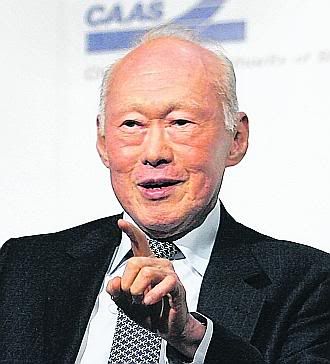<TABLE border=0 cellSpacing=0 cellPadding=0 width="100%"><TBODY><TR>Needy seniors working the streets are a reality
</TR><!-- headline one : end --><!-- show image if available --></TBODY></TABLE>
<!-- START OF : div id="storytext"--><!-- more than 4 paragraphs -->I AM surprised by the Government's reaction to an online video of a scavenging destitute woman in Wednesday's report (''Tell me, if someone needs help'').
Apparently, government officials went to the extent of verifying that the woman was actually in better circumstances than portrayed, to disprove the claims of the video editor.
No matter. Even if one disproves the dire circumstances of one individual, the problem is not non-existent.
One only has to take a walk around Chinatown, or indeed any heartland neighbourhood, to spot many elderly people who need help and try to earn some money by selling tissue paper, collecting cardboard or asking others for money.
As Singapore develops, the rich-poor income gap will widen. This is a reality of economic growth.
Although we do not want to erode competitiveness by resorting to high taxes like the Scandinavians, it will be useful to study similarly developed countries like Japan, which has among the smallest income gaps in the world.
The Government could create more awareness of its community care and welfare programmes, for instance. Although these have been around for some time, it appears that many who genuinely need help are unaware of these programmes and how to access them.
Tan Teck Leng
</TR><!-- headline one : end --><!-- show image if available --></TBODY></TABLE>
<!-- START OF : div id="storytext"--><!-- more than 4 paragraphs -->I AM surprised by the Government's reaction to an online video of a scavenging destitute woman in Wednesday's report (''Tell me, if someone needs help'').
Apparently, government officials went to the extent of verifying that the woman was actually in better circumstances than portrayed, to disprove the claims of the video editor.
No matter. Even if one disproves the dire circumstances of one individual, the problem is not non-existent.
One only has to take a walk around Chinatown, or indeed any heartland neighbourhood, to spot many elderly people who need help and try to earn some money by selling tissue paper, collecting cardboard or asking others for money.
As Singapore develops, the rich-poor income gap will widen. This is a reality of economic growth.
Although we do not want to erode competitiveness by resorting to high taxes like the Scandinavians, it will be useful to study similarly developed countries like Japan, which has among the smallest income gaps in the world.
The Government could create more awareness of its community care and welfare programmes, for instance. Although these have been around for some time, it appears that many who genuinely need help are unaware of these programmes and how to access them.
Tan Teck Leng



